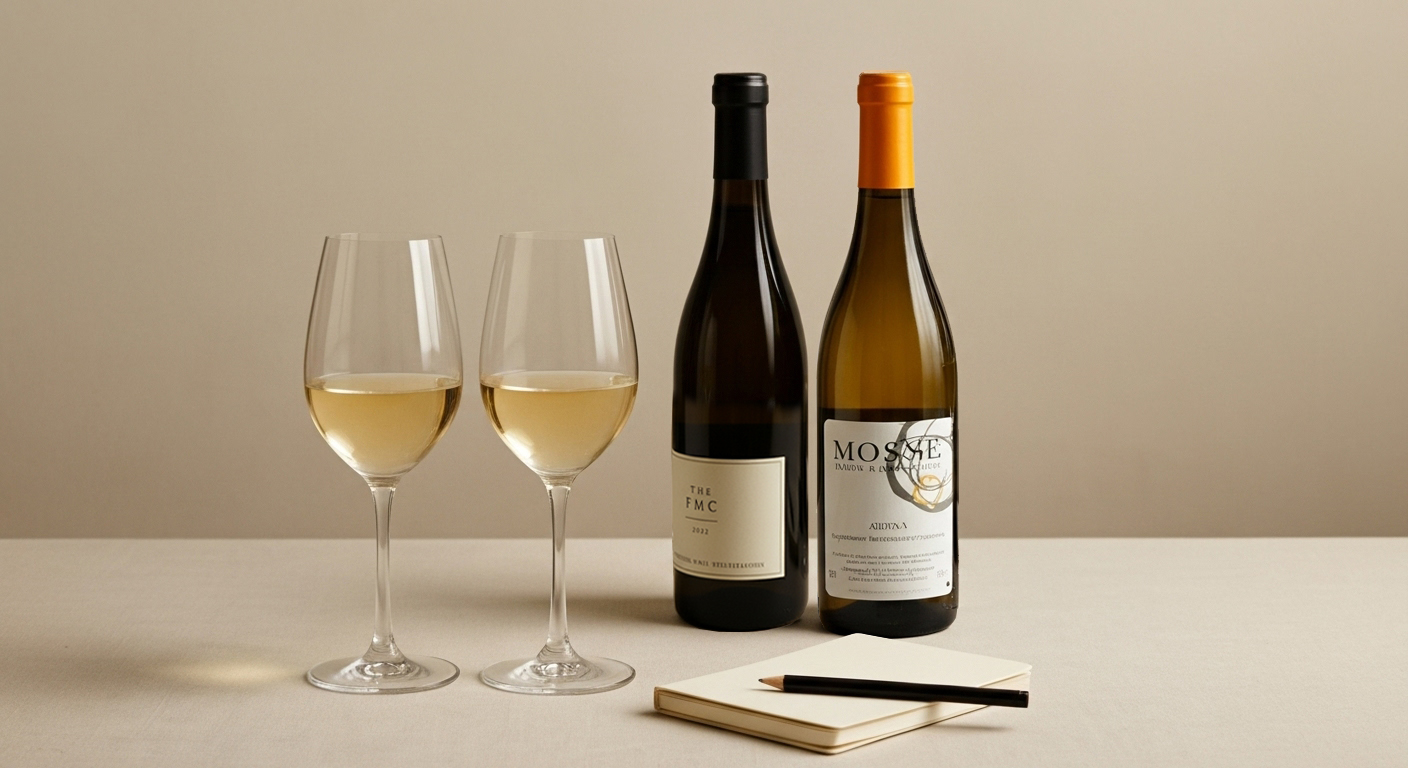

The Myth of Objectivity in Wine
You’ve probably heard people talk about wine tasting as if there’s one correct way to describe a wine. As if the job is to match some answer key. Maybe you’ve even felt the pressure yourself. You taste a wine, you notice a few things, and then you second-guess everything because your notes don’t sound like the “official” ones.
This belief—this chase for objectivity—gets in your way. It makes you feel like your own experience is not enough. It pushes you into performing tasting instead of paying attention to what’s actually in the glass.
The truth is simple: wine tasting is not objective. It never has been. But that doesn’t mean it isn’t real, accurate, or skill-based. Your palate can be trained and reliable without pretending there’s only one right answer.
Let’s break this down.
Why the Idea of Objectivity Persists
Wine exams and certifications train students to use the same style of notes. Wine books and websites present flavors like they’re facts carved in stone. Experts sometimes talk as if their palate is the standard and everyone else should try to match it.
So you hear a note like “white peach, lime pith, crushed seashell” and think:
If I don’t taste that, I must be wrong.
This is where people get stuck. You think the skill is guessing the correct answer. It’s not.
The real skill is noticing what you actually perceive—clearly and consistently.
What Actually Shapes the Way You Taste
Your tasting experience is not happening in a vacuum. It is shaped by:
- Biology - Your smell and taste receptors are not identical to anyone else’s.
- Memory - You name flavors based on the foods, environments, and scents you’ve experienced before.
- Context - Glass shape, temperature, lighting, setting, company, and mood all influence perception.
- Expectation - Labels, price, region, and reputation all affect what your brain anticipates.
Your palate is not “wrong.” It is responding to the world it has lived in.
If you have never eaten boysenberries, you won’t suddenly taste boysenberries. That’s not a failure. That’s your sensory memory doing its job.
Subjective Does Not Mean Unreliable
Subjective and sloppy are not the same thing.
Your impressions can be:
- Repeatable
- Consistent
- Useful
- Accurate
even if they are not identical to someone else’s.
The goal is not to match someone’s tasting note.
The goal is to build a stable sense of how you perceive structure, texture, and flavor over time.
That is what skilled tasters do. They don’t taste “better.” They taste with more awareness and memory.
The Parts of Wine You Can Assess Objectively
There are components that are more stable across tasters:
- Acidity: Notice how much your mouth waters.
- Tannin: Notice how dry or grippy your mouth feels.
- Alcohol: Notice warmth in your throat or chest.
- Sweetness: Notice whether sugar is present.
These are physical sensations.
They don’t rely on your personal flavor memory.
This is your foundation.
This is your shared language with other tasters.
Where Subjectivity Shows Up: Flavor
Flavor words are memories. They come from your life, not from a master list.
- If you grew up around citrus trees, you may notice lemon and orange quickly.
- If your memories are of herbal teas or dried spices, those may show up more often.
- If a wine reminds you of your grandmother’s pantry or a garden after rain, that is valid data.
There is no correct flavor note.
There is only the one that fits your lived experience.
How to Taste Without Chasing the “Right Answer”
Use this order every time:
- Start with structure. Acid, tannin, sweetness, alcohol. These are measurable sensations.
- Describe texture. Smooth, sharp, round, firm, grippy, soft. Keep the language direct.
- Then describe flavor using your own memory. Say what it actually reminds you of—not what you think you should say.
- Repeat this process regularly. Consistency builds confidence.
- Pay attention, don't perform. Your job is to notice, not to impress.
Closing Message
Objectivity is a myth.
It was never the real goal.
The real goal is:
- Awareness
- Attention
- Consistency
- Confidence
Your palate is already smart. It has been learning from every glass. You do not have to chase someone else’s tasting language to be “correct.” You just need to trust the experience you’re actually having.
Skill grows when you stop trying to sound right and start trying to notice clearly.
Your taste is valid.
Your palate is capable.
Your perspective is the point.

